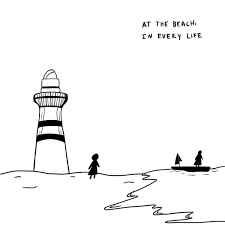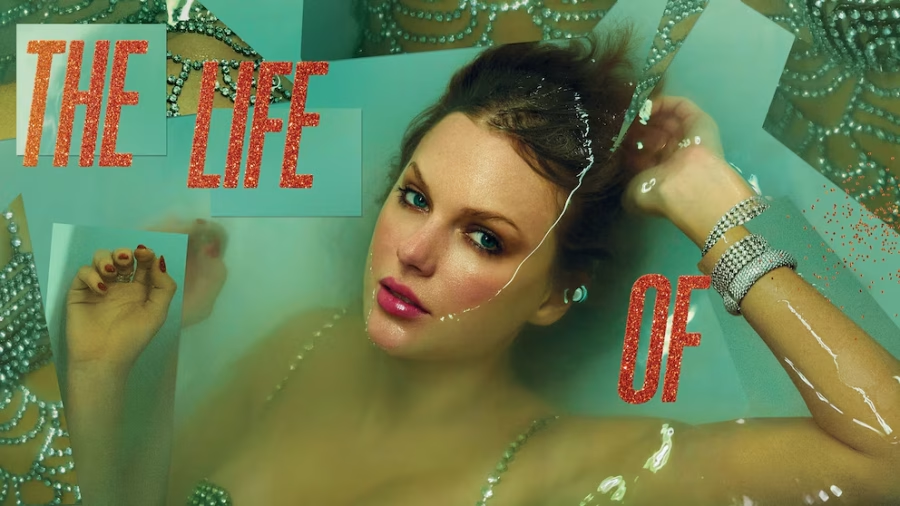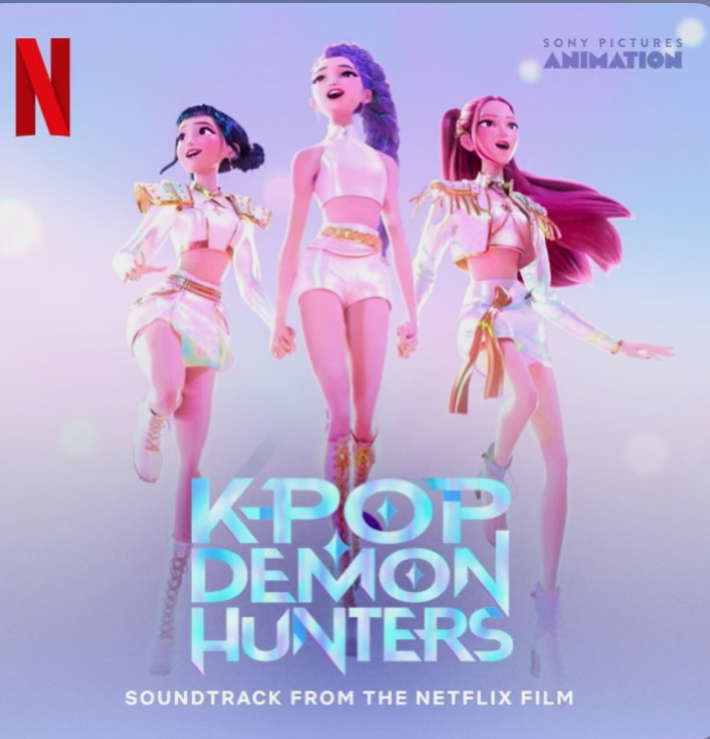At The Beach, In Every Life, by Gigi Perez, dives into the struggles of Gigi’s life regarding sexuality, grief, and complicated religion. It’s an album with deep lyricism paired with Gigi’s iconic acoustic guitar sound. It features popular tracks like “Sailor Song” and “Fable” which both explore difficulties with religion and Gigi’s own feelings on her sexuality. Gigi is an openly queer artist with a lot of her music centering around how it’s impacted her life and her struggles with accepting it.
Gigi starts the album out with these struggles presented in “Sailor Song”. This song became popular on Tik Tok prior to its release when Gigi was dropping teasers of it due to its impactful chorus that many members of the LGBTQ community can relate to. The chorus starts with, “Won’t you kiss me on the mouth and love me like a sailor,” to “Love someone like a sailor,” meaning to love someone passionately and loudly, coming from the notion that enlisted lovers, such as the navy sailors, will be very passionate lovers due to being apart from their lovers for long periods of time. It’s often hard for queer relationships to be loud about it due to societal standards and unacceptance. She then goes on to sing, “I don’t believe in God, but I believe that you’re my savior.” It is very common for the queer community to struggle with beliefs in God when many vocal Christian communities have historically had homophobic tendencies. Gigi expresses that she doesn’t need to be ‘saved’ by God, she just needs to be loved by her partner.
“Sugar Water” is a song with a strong emotional impact as Gigi explores her feelings about transitioning into adulthood and yearning for that simple, childhood innocence again. In verse 3 Gigi sings about specific fond memories from her childhood, which immediately transitions into the bridge with the repeating lyric of “I want it back,” guiding the theme of the song to wallowing in nostalgia and wanting to go back to when things were simple her in childhood. Near the ending of the song Gigi sings, “The rapture of our innocence, if you are guilty, I am in. I measure out our ignorance. When we were foul, our mouths got rinsed.” To start out, “The rapture” is a feeling of immense joy and happiness, leading the listener to understand that Gigi is saying her childhood brought her immense joy. “When we were foul our months got rinsed,” is a reference to the common childhood punishment of having your mouth rinsed when you said something you weren’t supposed to, but it can also be a metaphor for parents protecting children’s innocence for as long as they can, but when you grow up, there is no one that can protect you from the real, harsh world.
The sixth track, “Chemistry”, is another song that dives into a woman loving woman relationship, describing the tension that can come from unspoken feelings and the struggles that can come into these relationships. The first line, “Chemistry is rare,” is a testimony to the struggles of trying to find something genuine and real in the queer community. Many LGBTQ people are faced with societal judgement, external and internal homophobia, and complicated gender roles in the relationships which make them difficult to find and manage. These struggles can lead to people being cautious in their relationships which Gigi explains in her next verse. “And if this ends like all things do, I have come prepared. I have clipped a leash and left you by the tree. You’re in the yard, you’re keeping guard, you’re right where you need to be,” she’s gotten used to all her relationships ending in similar ways, so she’s prepared for the worst, but wants to do what she can to prevent that. She says she clipped a leash to her lover, keeping them from leaving, but keeping them in the yard shows she is also emotionally distancing herself to save her from the damage that she still believes is inevitable.
The next track, after the short interlude, “Survivors Guilt”, is called “Crown”. This track is very emotional, displaying Gigi’s grief to her sister, Celene, who passed away in early 2020. It explores the idea that people only really appreciate things when they’re gone, when they aren’t there for them to appreciate them anymore. She compares the death of her sister to the death of Jesus in the bible. In the first verse she sings, “They put the crown on His head, they only love Him cause He’s dead.” The ‘he’ Gigi is referring to here is Jesus and how Christians put him on a pedestal because he ‘died for their sins’ but historically when he was on Earth, many people scorned him and that is why he was eventually hung and killed. She then continues to sing almost the same thing about the death of her sister, “And it’s only when you’re dead they’ll put a crown on your head. They put a crown on her head, it’s only ’cause she’s dead.” Gigi believes she had the same fate, people only appreciated her and honored her when she died and she was no longer there for them to scorn and mock. Both of these figures were good people and only did the right things, but it was never enough.
The next track, “Fable,” is the second single that was popularized by Tik Tok, following its release. Many people believe the song is Gigi’s response to the criticism she got in “Sailor Song” for the lyric, “I don’t believe in God but I believe that you’re my savior,” but the song is actually more of a tribute to her late sister Celene and to Gigi’s struggles with Christianity. “Hedges of prayer, cause you believe doesn’t mean that it’s there,” to pray a ‘hedge of prayer’ is to, essentially, pray for someone and Gigi is saying that even if you believe in God doesn’t mean what they meant is always there. She continues on this, “It’s so rare that somebody’d look out for you. Thoughts and prayers is all they do,” saying that oftentimes people don’t actually have your best interest at heart, they just send thoughts and prayers to make themselves look better. She then goes on to sing, “Love was the law and religion was taught,” which is the lyric that got popular when she first teased the song. Here Gigi is showing the contrast between love and religion. Love is a natural law, it is in our nature to love people, whereas religion is a social construct spread to others, yet we still let religion dictate who we can love over the ‘natural law’.
The last track on the album is the title track, “At The Beach, In Every Life”. This song brings us full circle back to the first track, “Sailor Song,” as Gigi returns to singing about her partner and eventually coming to accept herself and her sexuality despite judgement put upon her. She brings religion into it once again as she sings, “Cause thе wolves are at my neck, I can’t talk about that yet. They’ve got **** inside those hearts, one day, they’ll have to repent. On judgement day, they’ll be glued right to the bed.” Gigi is talking about her haters or the people who think she is evil just because she’s a part of the LGBTQ community and saying that one day they will be the ones under their God’s judgement because of the hate in their hearts compared to the love in hers. She continues on to defy their standards, “There I saw you standing, must’ve been a holy light,” this seems to say that Gigi doesn’t understand how being LGBTQ can be a sin when she sees her lover in a holy light, something so pure and innocent. Just because you love somebody does not mean you are ‘sick’ or need to be ‘saved’. Those who judge others will be the ones being judged in the end.










